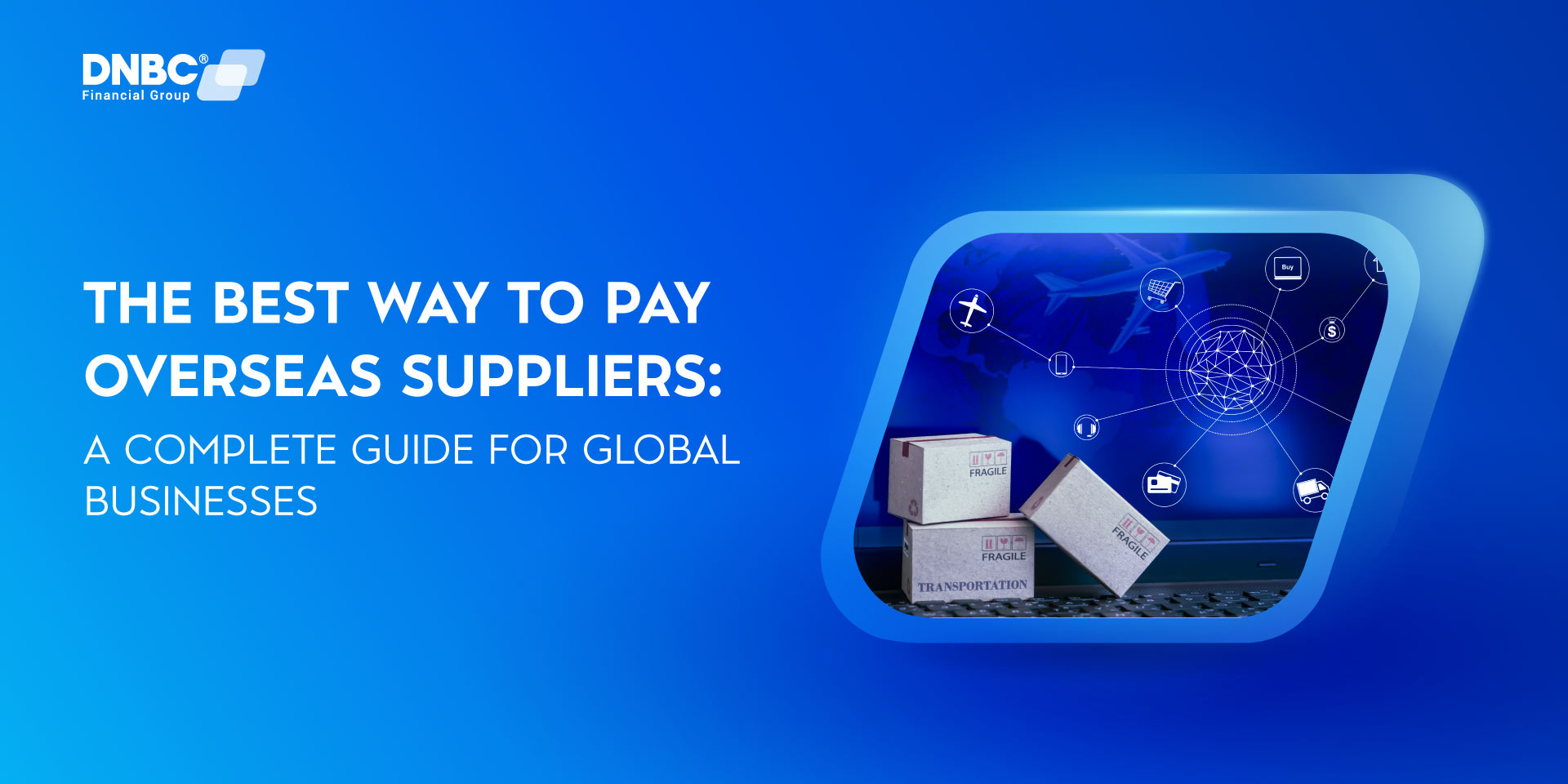- Home
- Blog
- Business Finance
- How ChatGPT Financial Advisor Can Revolutionize Investment Strategies
How ChatGPT Financial Advisor Can Revolutionize Investment Strategies
Business Finance
22 February 2025
DNBC Team
This article is a part of DNBCGroup Blog Center
Contact DNBCGroup for the technology news, tips, trends, and updates.
The investing world is evolving rapidly, driven by artificial intelligence (AI) and data analytics advancements. Traditionally, investors relied on human expertise, market experience, and fundamental or technical analysis to make financial decisions. However, with the rise of AI-powered tools, the investment landscape is experiencing a revolutionary shift. Enter ChatGPT financial advisor, an innovative solution that uses machine learning and probabilistic machine learning for finance and investing.
AI-driven financial advisory tools like ChatGPT analyze vast amounts of economic data in real time, providing investors with insights, trend forecasts, and personalized strategies. ChatGPT can assess risks, predict potential market movements, and help optimize portfolios with data-backed confidence by integrating probabilistic machine learning for finance and investing.
AI-powered tools offer a competitive edge for investors, from retail traders to institutional fund managers. They minimize biases, enhance decision-making, and provide risk-adjusted investment recommendations. But how exactly does ChatGPT revolutionize traditional investment strategies? In this article, we’ll explore the transformation of financial advising, the role of AI in risk management, and the growing importance of probabilistic models in investment forecasting.
The Evolution of Investment Strategies
From Traditional Investing to AI-Driven Strategies
Investment strategies have significantly evolved over the decades. Traditionally, investors relied on fundamental analysis—examining company financials, economic indicators, and industry trends—to determine the value of an asset. Meanwhile, technical analysis focused on price movements and trading patterns to make predictions. While these methods have been effective, they are often limited by human bias, slow decision-making, and an inability to process large volumes of real-time data.
The digital revolution brought algorithmic trading, where computers execute trades based on predefined criteria. This improved speed and efficiency, but even algorithms had limitations, as they operated on rigid rules without adaptability to sudden market shifts.
Integrating AI-powered financial advisors like ChatGPT has taken investing to a new level. AI-driven systems can process millions of data points per second, recognizing hidden patterns in financial markets that humans might overlook. Moreover, applying probabilistic machine learning for finance and investing, AI tools can assess uncertainties, simulate various market scenarios, and provide risk-adjusted investment recommendations.
As AI-driven financial solutions continue improving, investors no longer rely solely on human intuition. Instead, they can leverage data-driven insights, advanced risk assessment models, and real-time market predictions—ensuring more innovative investment strategies.

How ChatGPT Financial Advisor Enhances Investment Strategies
The ChatGPT financial advisor is transforming how investors approach decision-making by integrating AI-driven insights, data analytics, and risk management tools. Unlike traditional investment advisors who rely on historical patterns and human intuition, AI-powered advisors use probabilistic machine learning for finance and investing to process complex market data, predict future trends, and offer personalized strategies.
A. Data Analysis & Market Insights
One of the most significant advantages of ChatGPT financial advisor is its ability to analyze massive amounts of real-time economic data. ChatGPT can generate actionable insights that help investors stay ahead of market shifts by scanning market trends, news sentiment, and historical price movements. Instead of relying solely on past trends, ChatGPT leverages probabilistic modeling to predict potential future market movements, reducing guesswork in investment decisions.
B. Portfolio Optimization & Risk Management
Investment risk is one of the key concerns for both individual and institutional investors. ChatGPT utilizes probabilistic models to assess portfolio risks dynamically. By incorporating Bayesian inference and Monte Carlo simulations, AI-powered financial advisors can estimate possible future returns while accounting for market volatility. This enables investors to:
- Diversify their portfolios efficiently.
- Adjust asset allocations based on changing market conditions.
- Minimize downside risks while maximizing long-term gains.
C. Personalized Investment Advice
Traditional financial advisors often take a generalized approach to investment strategies, but ChatGPT financial advisor offers personalized investment recommendations based on an investor’s risk appetite, financial goals, and market conditions. It can:
- Recommend stocks, ETFs, or bonds that align with an investor’s profile.
- Adjust strategies in real time based on market fluctuations.
- Explain its recommendations, ensuring investors understand the rationale behind each decision.
By leveraging AI-driven insights, ChatGPT financial advisor empowers new and experienced investors to make informed, data-driven investment choices, ensuring more intelligent financial planning and optimized portfolio management.

The Role of Probabilistic Machine Learning in Investment Decisions
What Is Probabilistic Machine Learning in Finance?
Probabilistic machine learning is a branch of AI that deals with uncertainty and probability-based predictions. Unlike traditional deterministic models that assume fixed outcomes, probabilistic models assess multiple possible future scenarios with varying degrees of confidence. This is particularly useful in finance for forecasting stock prices, evaluating risk, and optimizing portfolios under uncertain conditions.
How Probabilistic Models Improve Investment Forecasting
AI-driven investment tools use probabilistic machine learning for finance and investing to enhance forecasting accuracy. Instead of providing a fixed prediction, these models assign probabilities to different potential market movements. This allows investors to make better risk-adjusted decisions by understanding the likelihood of various outcomes.
For example:
- A Bayesian network can help investors adjust their portfolios by continuously updating probabilities as new market data emerges.
- By running thousands of market scenarios based on historical trends and current economic factors, Monte Carlo simulations can estimate potential price movements.
Real-World Applications of Probabilistic Learning in Finance
- Stock Market Prediction: AI tools use probabilistic models to estimate the likelihood of price changes, helping investors make data-driven trading decisions.
- Risk Assessment: Investment firms use probabilistic algorithms to assess portfolio risk exposure under various market conditions.
- Algorithmic Trading: Hedge funds and institutional investors rely on probabilistic models to execute high-frequency trades based on statistical probabilities.
By integrating ChatGPT financial advisor with probabilistic machine learning, investors can move beyond traditional forecasting methods and adopt a more adaptive, risk-aware investment strategy that maximizes returns while minimizing uncertainty.
Case Studies: How AI & ChatGPT Are Transforming Investing
Integrating AI-powered tools like ChatGPT financial advisor is reshaping the investment landscape. From retail investors to large financial institutions, AI is leveraged to enhance decision-making, risk assessment, and portfolio optimization. Below are three real-world case studies showcasing how AI-driven investment strategies revolutionize finance.
Case Study 1: AI-Powered Robo-Advisors in Wealth Management
Companies like Betterment and Wealthfront use AI-driven robo-advisors to provide automated investment solutions. These platforms leverage probabilistic machine learning for finance and investing to adjust portfolios based on market trends, risk tolerance, and investor goals. As a result, retail investors can now access sophisticated portfolio management strategies without hiring a financial advisor.
Case Study 2: AI in Institutional Quantitative Trading
Hedge funds and financial institutions increasingly rely on AI for quantitative trading. Firms like Two Sigma and Renaissance Technologies use AI-powered algorithms to analyze market patterns, detect arbitrage opportunities, and execute high-frequency trades. By incorporating probabilistic models, these firms reduce exposure to market volatility while maximizing profit potential.
Case Study 3: ChatGPT for Real-Time Investment Insights
Retail investors and financial analysts use ChatGPT financial advisor to gain real-time insights on stock movements, macroeconomic trends, and risk analysis. Unlike static reports, ChatGPT continuously updates its predictions using the latest market data, enabling investors to make more informed and timely investment decisions.
These examples illustrate how AI-driven solutions are making investing more accessible, data-driven, and efficient, reshaping the future of finance.

Challenges & Limitations of AI in Investing
While AI and ChatGPT financial advisor offer significant advantages, they also come with challenges and limitations that investors must consider.
1. Market Volatility and Unpredictability
Unexpected events, such as geopolitical crises, economic downturns, and regulatory changes, influence financial markets. While AI models use probabilistic machine learning for finance and investing to make predictions, they cannot fully anticipate black swan events that disrupt market stability.
2. Data Bias and Algorithmic Errors
AI models are only as good as the data they are trained on. If the data contains biases or inaccuracies, the predictions may be flawed. For example, if an AI system is trained on data that primarily reflects bull markets, it may struggle to predict bear market conditions.
3. Lack of Human Judgment
AI lacks emotional intelligence and qualitative reasoning, which are crucial in interpreting political, social, and economic trends affecting financial markets. While AI can analyze numerical data efficiently, human investors must apply strategic thinking and contextual awareness.
4. Ethical and Regulatory Concerns
As AI-driven investing becomes widespread, regulatory bodies increasingly scrutinize algorithmic trading and AI-powered financial advice. Market manipulation, unfair trading advantages, and accountability in AI-driven decisions must be addressed.
Conclusion & Future of AI-Powered Financial Advising
Integrating AI into financial advising revolutionizes investment strategies, making them more data-driven, efficient, and accessible. ChatGPT financial advisor plays a key role in this transformation by providing real-time market insights, risk analysis, and portfolio optimization through advanced probabilistic machine learning for finance and investing. From robo-advisors in wealth management to institutional algorithmic trading, AI-driven tools empower investors to make smarter decisions with reduced risk.
However, despite its advantages, AI in investing is not without challenges. Market volatility, data biases, regulatory concerns, and the lack of human intuition are factors that investors must consider. AI should be a complementary tool rather than a complete replacement for human expertise.
At DNBC Financial Group, we recognize the growing role of AI in shaping financial services. As a leading international transfer and business service provider, we are committed to leveraging technology to enhance financial solutions. Whether streamlining global transactions or optimizing corporate economic strategies, AI-driven tools help us provide secure, efficient, and tailored services for businesses and individuals worldwide.
As AI-powered financial advising continues to evolve, integrating ChatGPT financial advisor with business services and global money transfers will unlock new opportunities for more innovative and efficient economic management. The future of investing is here—will you embrace it?
Your Trusted Partner
In your Digital
Journey
Free 1 - on -1 support
Free account opening fees
No hidden fees
Note: The content in this article is for general informative purposes only. You should conduct your own research or ask for specialist advice before making any financial decisions. All information in this article is current as of the date of publication, and DNBC Financial Group reserves the right to modify, add, or remove any information. We don’t provide any express or implied representations, warranties, or guarantees regarding the accuracy, completeness, or currency of the content within this publication.
Related posts

A Guide to Low-Cost Business Transfers Outside the SEPA Area
04 July 2025

How to Set Up a Business Escrow Account: A Simple Guide
20 June 2025

Cross-Border Business: Opportunities and Challenges in the Global Marketplace
23 May 2025

The Best Way to Pay Overseas Suppliers: A Complete Guide for Global Businesses
22 May 2025

Real Time Cross Border Payments: Shaping the Future of Global Financial Transactions
22 May 2025